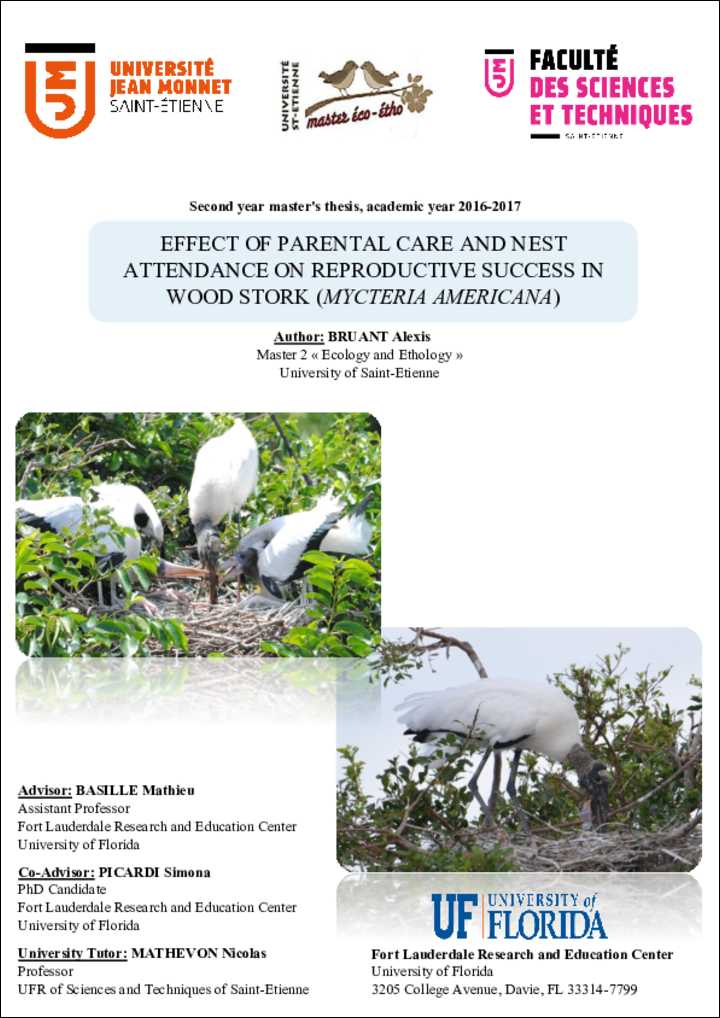Abstract
Parental care is a complex behavior, both in terms of expressed behaviors and factors driving evolution of these traits. Biparental care is predominant in birds because the presence of single parent is often not sufficient to sustain the brood. Wood Storks (Mycteria americana) are large wading birds dispensing biparental care and are classified as threatened in the US. In this study, I have shown that Wood Stork gradually increased the frequency, but not the duration, of foraging trips during the period of chick development. In addition, reproductive success ratio (number of hatchlings / number of fledglings) is positively influenced by the number of foraging trips during the late stage of chick development. The occurrence of “takeovers” was greater in late-breeding pairs and seemed to peak in the first few weeks of incubation. Wood Stork preferred to increase the number of foraging trips rather than their duration to meet the growing energetic demand of chicks. Finally, takeovers can affect many nests during the breeding season (30 % in my study), and a late initiation of incubation would increase this risk.
